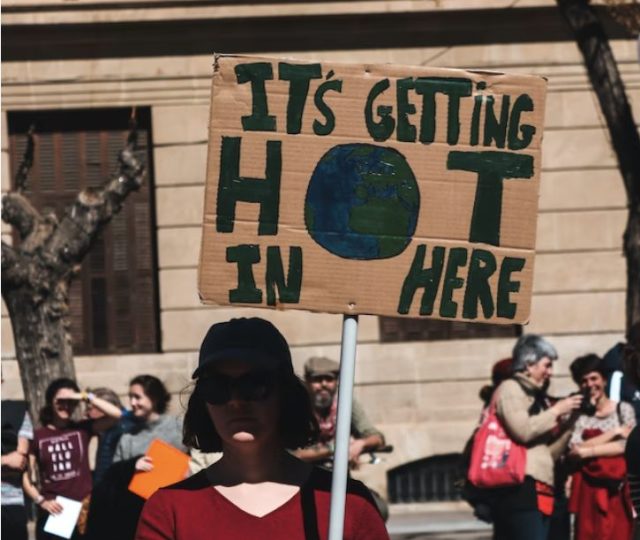INSIGHT by Greenpeace
Greenpeace will take the European Commission to the European Court of Justice over the inclusion of fossil gas and nuclear energy in the EU’s list of sustainable investments, the taxonomy. The move comes as the Commission has rejected a formal request made by Greenpeace in September to abandon the greenwashing of fossil gas and nuclear power.
Greenpeace EU sustainable finance campaigner Ariadna Rodrigo said: “We will fight this fake green label in court. We will study the Commission’s response, but their relentless hypocrisy about fossil fuels and nuclear power is pure greenwashing, and we can prove it. The same polluters that Ursula von der Leyen wants to reward with a sustainable label are the ones responsible for many of the hardships people face today, like the cost of living crisis and the climate emergency.”
On 8 September 2022, eight Greenpeace organisations in Germany, France, Spain, Italy, Belgium, Luxembourg, Central and Eastern Europe and the Greenpeace European Unit sent a formal request for internal review to the Commission. This request argued that the inclusion of gas and nuclear in the taxonomy violates the Taxonomy Regulation, the European Climate Law, and the EU’s obligations under the 2015 Paris climate agreement.
On 9 February 2023, the Commission replied, declining Greenpeace’s request to withdraw gas and nuclear from the taxonomy. Greenpeace will now file a lawsuit at the European Court of Justice, in April 2023. The Austrian government is also suing the Commission for its greenwashing of gas and nuclear power.
| Arguments
Greenpeace argues the Commission’s inclusion of fossil gas and nuclear energy in the taxonomy violates several EU laws, and relied on procedural mistakes and shortcomings. The following is a summary of some of Greenpeace’s arguments against the gas and nuclear activities which have been included in the taxonomy:
Regarding fossil gas:
〉The Commission set a threshold for carbon emissions from fossil gas power generation of 270 grams of CO2 equivalent per kilowatt hour. This is not compliant with existing EU law. The Taxonomy Regulation, the EU Climate Law, and the 2015 Paris Agreement allow for no more than 100 grams of CO2 equivalent per kilowatt hour.
〉Investments in new fossil gas power generation cannot be considered “transitional”, as required by the Taxonomy Regulation, because such plants could remain in operation beyond the EU’s 2050 deadline to achieve the energy transition. This also contravenes the EU Climate Law.
〉The Commission wrongly argues that the inclusion of gas in the taxonomy is allowable because there are no “technologically and economically feasible low-carbon alternatives”, but such alternatives do exist, such as wind and solar power.
〉The inclusion of fossil gas in the taxonomy creates a competitive advantage for gas and will thus hinder the EU’s legally-binding objectives of transitioning away from fossil fuels.
Regarding nuclear:
〉Nuclear energy does not comply with the “Do No Significant Harm” principle of the Taxonomy Regulation. Nuclear energy’s life-cycle emissions, uranium mining, high water usage, warm water discharge, and large-scale generation of radioactive waste all violate this principle. Nuclear power generation therefore undermines several other objectives of the Taxonomy Regulation.
〉The Commission incorrectly assumes that nuclear energy is an enabling activity for the energy transition, when in fact it leads to the curtailment of renewables.
〉The Commission wrongly designates nuclear energy as a climate mitigation activity, i.e. one which helps the EU to achieve its emissions reductions targets. In fact, investments in nuclear energy take so long to come online that they would both delay the phase-out of coal plants and hinder the development of renewables.
〉Nuclear energy is also not a climate adaptation technology, i.e. one which is resilient to the increased risk of adverse events caused by the climate crisis. Nuclear energy is in fact heavily impacted by adverse climate events, such as heatwaves and droughts.
〉The Commission ignored the possibility that a nuclear plant may be subject to terrorist or military attack, and that these events may be the source of major accidents and related pollution.
For more technical and legal information about Greenpeace’s arguments against the inclusion of gas and nuclear in the EU taxonomy, please read our February 2023 media briefing.
| All opinions expressed are those of the author and/or quoted sources. investESG.eu is an independent and neutral platform dedicated to generating debate around ESG investing topics.









